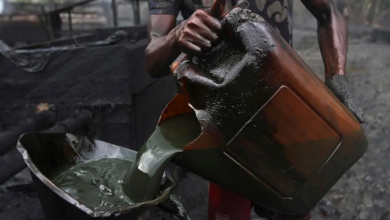ANOH gas plant to boost power generation by 1200mw – Seplat

Seplat Petroleum Development Company Plc has said that the Assa North-Ohaji South (ANOH) gas and condensate processing plant in Imo State slated to kicked off operations in 2021, will further boost the power generation in Nigeria by over 1,200 megawatts.
The General Manager, Gas at Seplat, Mr. Okechukwu Mba, disclosed this at the Nigerian International Petroleum Summit (NIPS) 2020.
Speaking during a panel session tagged: ‘Charting the Way Forward for Gas’ the Mr Mba said strategically the company is positioned to access Nigeria’s main demand centres, adding that current well stock delivering was around 300 Million standard cubic feet per day (Gross).
With over $300 million invested in Oben Gas Plant Expansion Project, which is another gas plant run by Seplat, he said the company currently contributes about 30 per cent of gas to power generation in Nigeria, adding that “ANOH project has the capacity to unlock over 1,200MW of gas constrained power generation capacity.”
He explained that despite the huge gas reserves, the country has been unable to translate its resources to effectively boost the economy.
Highlighting the key challenges the industry faces today in translating reserves to value were, he said, Lack of adequate infrastructure (constraint on gas transmission distribution); funding constraints for upstream, midstream and downstream sectors; and sub-optimal institutional and regulatory framework including extensive and bureaucratic process for obtaining licenses and approvals, weak corporate governance and policy inconsistencies.
In addition, he said uncertainties around changes in fiscal framework, local community crisis, mismatch in currency (gas revenue in Naira versus costs in United States Dollar), and Domestic Supply Obligation (DSO) gas pricing constraints were the prevailing challenges.
According to him “The continent can fuel an economy four-times larger than today with only 50 per cent more energy driven by a major shift towards energy sources such as renewables and natural gas and efficiency improvements.
“Stated Policies Scenario reflects the impact of existing policy frameworks and today’s announced policy intentions. The aim is to hold up a mirror to the plans of today’s policy makers and illustrate their consequences for energy use, emissions and energy security.”
The Africa Case Scenario, he noted, was built on the premise of “Agenda 2063”, established by the Heads of State and Governments of the African Union in 2015, and “in this case, faster economic expansion is accompanied by the full achievement of access to electricity and clean cooking, in line with Sustainable Development Goal 7,” he added.
Culled from blueprint.ng.





